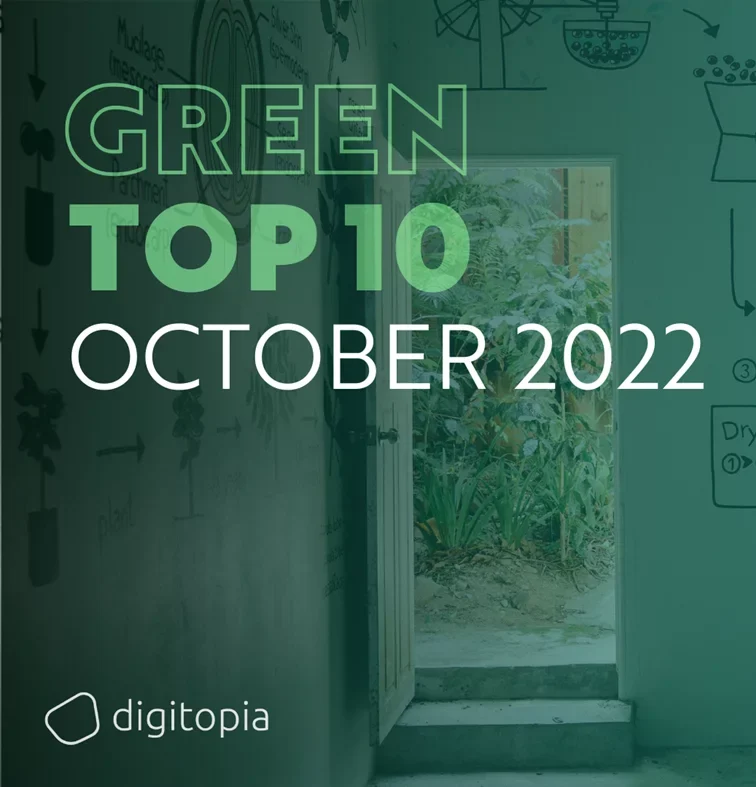
1. HSBC hires Justin Wu as Asia-Pacific co-head of climate change – memo
HSBC has hired Justin Wu as its first co-head of climate change Asia Pacific to lead the development and implementation of the bank’s sustainability strategy in the region. Wu joins HSBC from Bloomberg New Energy Finance, where he was the Asia Pacific regional managing director. The hire is the latest in a series for the Asia-focused lender as it looks to build a ‘Sustainability Centre of Excellence’ to help the bank and its clients manage the global transition to a low-carbon economy.
Source: Reuters
2. Selfridges wants half of transactions to be resale, repair, rental or refills by 2030
Andrew Keith, the managing director of the department store group, said its “Reselfridges” initiative aimed to change the way that people shop and would form the “backbone of the business”, making up 45% of transactions in future. He set a deadline of 2030 to reach that target. Last year, the retailer increased sales of secondhand items by 240% to 17,771 pieces and facilitated 28,000 repairs, more than a third of which were pairs of trainers. It also rented out more than 2,000 items to customers and sold more than 8,000 refills.
Source: The Guardian
3. Patagonia’s billionaire owner gives away company to fight climate crisis
After turning his passion for rock climbing into one of the world’s most successful sportswear brands, Patagonia founder Yvon Chouinard and his family donated 2% of all stock and all decision-making authority to a trust, which will oversee the Patagonia’s mission and values. The other 98% of the company’s stock will go to a non-profit called the Holdfast Collective, which “will use every dollar received to fight the environmental crisis, protect nature and biodiversity, and support thriving communities, as quickly as possible”, according to the statement. Each year, the money Patagonia makes after reinvesting in the business will be distributed to the non-profit to help fight the environmental crisis.
Source: The Guardian
4. Nepal has nearly tripled its wild tiger population since 2009
Nepal’s National Tiger and Prey Survey 2022 found there are now 355 wild tigers in the country, a 190% increase since 2009. Ginette Hemley, senior vice president for wildlife conservation at the World Wildlife Fund-US, said: “Tigers in Nepal and everywhere else that they live in Asia, about 10 countries, were on a steady decline because of two key reasons. The most immediate reason was poaching for the illegal animal trade. The second reason was loss of habitat.”
Source: CNN
5. Samsung to Invest $5 Billion Under Plan to Tame Emissions
Samsung Electronics Co. will invest over $5 billion in green initiatives and call on South Korea to tackle high costs of clean energy as the electronics giant looks to reverse a rise in emissions and zero out direct pollution by mid-century. In order to eliminate Scope 1 and 2 carbon emissions, the new strategy includes spending on carbon capture and storage, measures to reduce water consumption and the release of gases during semiconductor manufacturing, work to boost the energy efficiency of its products and improvements to the collection of electronic waste for recycling.
Source: Bloomberg
6. Uber has a new tool to help companies clean up their transportation carbon footprint
The first step to companies reducing their carbon emissions is measuring them. On Monday, Uber rolled out a new tool to do just that, allowing companies to track emissions when employees take business-related rides. The company is providing its 170,000 corporate clients information on their total rides and emissions in a bid to get them to track and lower them over time.
Source: Protocol
7. EV Charging Startup Loop Raises $40 Million to Fuel Expansion
Electric vehicle charging infrastructure startup Loop Global announced that it has raised $40 million in a Series A funding round, aimed at supporting the company’s growth of its U.S. operations and its expansion to new countries. Launched in 2019 and currently providing EV charging solutions currently in all 50 U.S. states and in 15 countries around the world, Loop provides EV charging solutions including turnkey hardware, software and ongoing operating service-based solutions, aimed at making EV charging more accessible and easily deployable for commercial, multifamily residential, fleet and municipal real estate property owners.
Source: ESG Today
8. Nestlé Commits Over $1 Billion to Sustainable Coffee Farming Plan
Global food and beverage company Nestlé announced that the company’s ubiquitous coffee brand will invest over 1 billion Swiss Francs (USD$1 billion) as part of the new Nescafé Plan 2030 to improve the sustainability of coffee farming and help farmers transition to regenerative agriculture practices.
Source: ESG Today
9. Scientists crack upcycling plastics to reduce greenhouse gas emissions
Scientists from the University of Illinois Urbana-Champaign, University of California, Santa Barbara, and Dow have developed a breakthrough process to transform the most widely produced plastic — polyethylene (PE) — into the second-most widely produced plastic, polypropylene (PP), which could reduce greenhouse gas emissions (GHG).
Source: Science Daily
10. Banks face legal risks if they don’t stick to climate goals, ECB says
Major Wall Street banks including Morgan Stanley, JPMorgan and Bank of America are weighing an exit from The Glasgow Financial Alliance for Net Zero (GFANZ), a coalition of assets managers, banks and insurance firms representing $130 trillion in assets directed toward tackling climate change, as they fear being sued over the alliance’s stringent decarbonisation commitments. ECB supervisor Anneli Tuominen said that banks “expose themselves to litigation and reputational risks” if they do not meet the targets they have announced or follow the climate strategy they have communicated.
Source: Reuters

